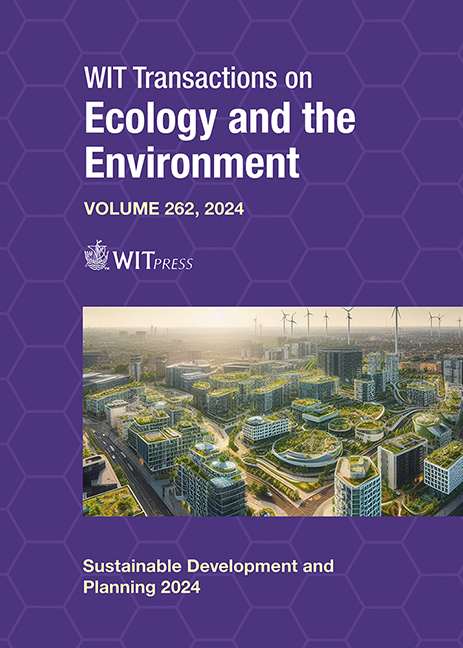MARKETPLACE MOSAICS: UNDERSTANDING THE INNER MECHANISMS OF NEWLY EMERGENT INFORMAL STREET MARKETS IN COLOMBO, SRI LANKA
Price
Free (open access)
Transaction
Volume
262
Pages
12
Page Range
417 - 428
Published
2024
Paper DOI
10.2495/SDP240351
Copyright
Author(s)
RANDIMA DE SILVA, PRASANNA DIVIGALPITIYA
Abstract
Informal street markets are integral to the urban fabric of many developing nations, creating dynamic public spaces through economic, social and spatial interventions. These markets, despite lacking formal infrastructure support, self-organise and manage their spaces, offering a potential sustainable solution for public space management in developing cities. This study examines the socio-spatial, self-organisational and institutional elements that sustain informal street markets, aiming to create a framework for self-sustained public spaces. Focusing on the Kimbulawala street market in Sri Lanka, which emerged during the 2019 economic recession and operates amid government opposition, the research utilises interviews and correspondence analysis to explore the relationships and characteristics of vendors. The findings reveal three vendor categories: stewards, keepers and followers, each with distinct social capital and organisational roles. Stewards exhibit high linking social capital and agency, leading the market’s self-organisation and resistance against state interventions. Keepers, with strong bonding social capital, focus on market maintenance and negotiations with the government, while followers, less active in organisational efforts, rely on the collective power of the community. The study highlights that negative state actions can catalyse stronger self-organisation among vendors, emphasising the importance of vendor associations for market sustainability. Soft assets such as social capital, entrepreneurship, and pride in work are crucial indicators of a market’s resilience. The research concludes that informal markets, through proper understanding and regulation, can significantly contribute to creating vibrant and liveable urban spaces. The framework developed can be applied to other contexts to evaluate market sustainability, suggesting future research to explore its applicability in different economic and cultural settings. This study underscores the untapped potential of informal markets in developing cities, advocating for their inclusion in urban planning to foster liveable and sustainable urban environments.
Keywords
informality, street markets, self-organisation, socio spatiality, social capital, social networks





